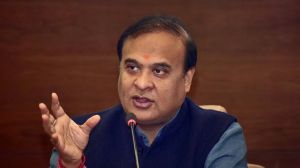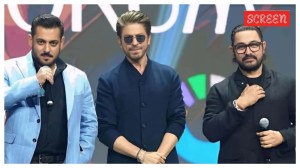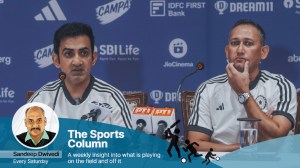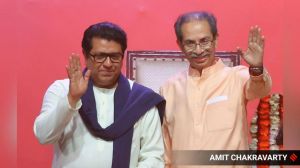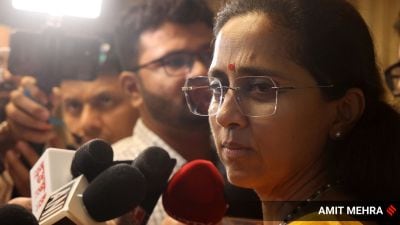Stay updated with the latest - Click here to follow us on Instagram
Access to freedom
Dipendra Manocha lost his eyesight when he was a child but he didnt lose his vision to do something in life.
Dipendra Manocha is visually-impaired,but he enables others like him live independently
Dipendra Manocha lost his eyesight when he was a child but he didnt lose his vision to do something in life. He started using technology to provide solutions and build a communication system tha would enable the disabled to do their work without being dependent on others.
Manocha,43,is the managing trustee of Saksham,which he founded in 2003. The organisation provides aids and appliances to disabled at the lowest possible cost. He is also the Director of the Digital Accessible Information System (DAISY) For All in New Delhi. DAISY For All is part of the international DAISY consortium,an organisation that provides digital talking books for people who have print disabilities. In 2005,Manocha received the national award for his contributions in the area of disability.
I was diagnosed with a genetic disorder,which began causing visual impairment,and by the age of 12,I was totally blind. I studied in a regular school but I noticed that even though special provisions were made for students with disabilities,the facilities were dismal. For example,in my class,out of 40 students,four were blind and all four of us had to share one Braille textbook. It was very difficult, he says.
This,along with the frustration of being dependent on the reader in order to study,used to trouble Manocha. He studied Indian classical music at Delhi University and also did his Masters in Philosophy in 1992. Till the time you are in school or college,the syllabus is structured and you can ask for help from people in your class,but at the time of doing PhD,it becomes problematic as every student has a different paper. It was frustrating (waiting for a reader). He would usually be late and sometimes he would not turn up at all. Though the books would be in front of me,I wouldnt be able to do anything. I used to feel so helpless. These were some of the most difficult times in my life but they acted as a pushing factor and gave me the kind of strength and determination to bring about a change.
He left his PhD in music and started dabbling in the application of computers for aiding the disabled. The decision to leave a career in music was very difficult,but hats off to my parents,who supported me. I was getting a fellowship to do my PhD and left that in order to begin something new,which meant I had to be financially dependent on my parents for a long time, he says.
In 1993,Manocha visited the National Association for the Blind at RK Puram and became interested in a special type of computer there. I felt there was some potential in it. It could be used for a lot of things and opened up a world of possibilities. I started using the Braille scanner and printer. It was the beginning of my journey.
He stayed at the Academy for 14 years,first studying and later training others. Through his involvement in using cutting edge technology to bring forth solutions,he gradually became a part of DAISY For All in 2003,where the focus was on making reading material accessible to people in the form of digital books.
Meanwhile,at Saksham,his aim was to provide to the visually-challenged a software that could read everything on the computer,talking mobile phones,and digital talking books in English as well as local languages.
Also,another significant thing we did was open a website where as many as 19,000 downloadable books were available in digital format. Through this,disabled people could get access to Indian as well as International publications. We are trying to get newspapers and magazines converted into a talking format or a Braille version.
His journey has been tough but rewarding. One of the challenges before his organisation,Saksham,was how to sell certain aids and appliances to visually impaired people at lower rates than those available in the market.
If a particular aid is available in the international market for Rs 80,000,we have to bring it down to 20,000-30,000,which is not easy. It involves a lot of market research and coordination with various agencies. Still,at the end of the day,what is most important is when a disappointed-looking person,who has lost his eyesight,comes up to me but goes back with a bright smile on his face, says Manocha.


